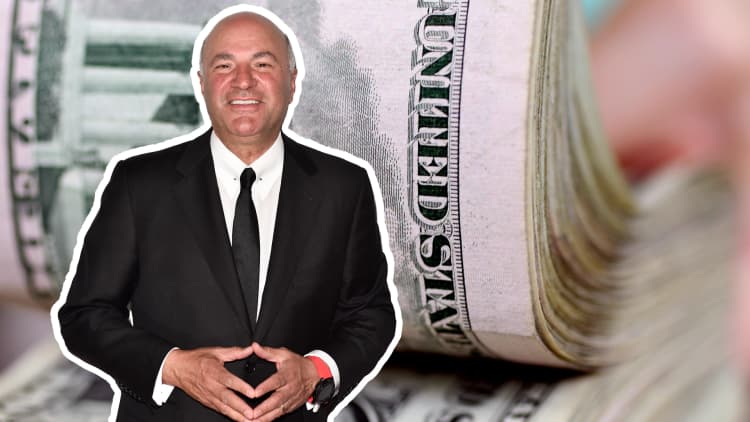There are many reasons to accept a job, but some millennials are searching for employers who offer an emerging benefit: student loan repayment assistance programs.
Harvir Humpal, 24, is in that camp. Humpal graduated last year with a master's in biomedical engineering — and about $60,000 in loans, he tells CNBC Make It.
Student loan debt was top-of mind, so finding an employer willing to help pay that off was a big incentive. It led to his decision to accept a job with Abbott, a healthcare company that focuses on medical devices, diagnostics and nutrition. Last June, the company rolled out its Freedom 2 Save program, which helps employees pay down their student debt while staying on track with their retirement savings.
"It was one of the main focal points of me wanting to come to Abbott," Humpal says.
He's not alone in wanting these types of programs. Nearly nine out of 10 recent graduates with student loans are looking for jobs with employers who offer student loan repayment assistance, according to a recent survey by Abbott of about 2,600 U.S. adults. And 62% of working American adults say they would consider switching to a company that offered this benefit.
This assistance hits home with many younger workers because it's something so many are dealing with. But some of these programs may look more attractive than they really are, or may not be the right fit for everyone, Ross Riskin, assistant professor of taxation at the American College of Financial Services, tells CNBC Make It. "Just because something comes out and it's popular doesn't always mean its good," he adds.
You shouldn't accept a job just because the company provides this type of assistance either. The salary offered, other benefits and your passion for the work are just as important. "It shouldn't be the main driver for them to take the job," Riskin says.
Here are three questions that recent college grads and those interested in student loan repayment assistance should ask before accepting a job with an employer who offers this type of benefit.
1. How is the program structured?
The way in which a company's student loan repayment program is set up can play a big part in how beneficial it is, experts say. It's worth getting the details before accepting a job offer. "We're seeing a bunch of variations of this employer-provided assistance coming out," Riskin says.
Still, there are relatively few employers that offer this benefit: Only about 4% of companies offer student loan repayment assistance to their employees, according to the Society for Human Resource Management.

In some programs, like Abbott's, the company provides a matching contribution to your retirement savings while you pay down your student loans. In Abbott's case, the company pays of 5% of an employee's salary into their 401(k) plan if they can show they're putting at least 2% of their pay toward their student loans.
Yet the more popular option, currently, is a program where the company matches the amount you're contributing toward paying off your student loans. In that case, your employer makes direct payments on the loan on your behalf.
"Some employers are going to mimic the Abbott structure, but many won't because it's fairly complicated. It's easier to just pay the money to the lender then to make the contributions to the 401(k)," Mark Kantrowitz, an expert on student debt, tells CNBC Make It.
But while that may be easier for the company, an employer payment toward your loans is considered taxable income, which means you'll be on the hook for those contributions when you file your annual taxes. So it's not entirely free money.
Riskin says it's important to keep in mind that you don't need an employer-based repayment program to pay off your student loans. You can always repay them on your own without any additional taxable income to consider. And, "if you're going to be taxed on that assistance, you may be better off trying to negotiate for a higher salary," Riskin says.
For example, say you get an offer from a potential employer that has a program that will pay an extra $10,000 toward your student loans. But you get another offer from a company that is giving you a higher salary that's more even after factoring in loan assistance. "The financial benefit from the greater salary might exceed the benefit from the student loan payment," Kantrowitz says.

2. How much money are you getting for your loans?
Many employers have limits on these programs, both yearly and lifetime. For example, health insurance company Aetna offers to match up to $2,000 in student loan payments each year for full-time employees and caps the total assistance at $10,000. Part-time employees are eligible for $1,000 a year and up to $5,000 total in student loan payments.
Other places, such as education company Chegg, do not have caps on the total loan repayment employees can receive, but they do limit the yearly contributions. If you plan on staying with the company for a while, this type of program may end up paying more in the long run.
3. What are the restrictions?
In addition to asking if there are any financial caps, it's important to know if the company has any other limitations on its programs.
Some employers may require that you work at the company for a specific amount of time before you're eligible to participate. At other places, the program may only be available to full-time employees within a specific role.
For example, technology company Nvidia offers a $500 monthly reimbursement for student loans to employees that have graduated in the past three years and work at least 20 hours a week, up to $30,000 in total. But interns, co-ops and other temporary employees are not eligible. You also need to work for the company for at least three months before applying.
For Humpal, doing his homework paid off. He had three to four offers, but by choosing Abbott, he estimates he's ahead on his loans. "Because of Freedom 2 Save, I'll save about $7,000 in principal interest by my estimation and I'll be able to pay off my loan debt four or five years faster," he says.
Don't miss: Memphis has pledged to help its city employees pay off their student loans
Like this story? Subscribe to CNBC Make It on YouTube!



